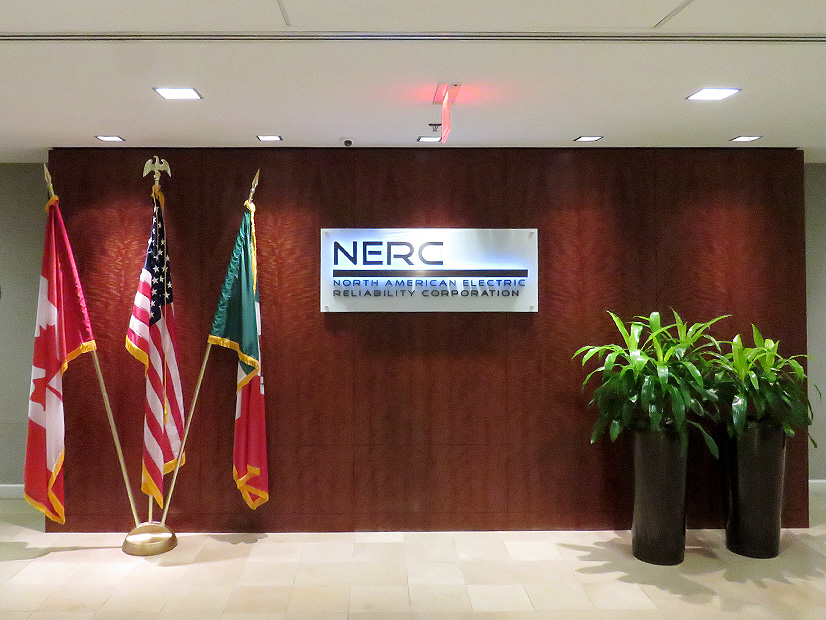Membership criteria for standard drafting teams (SDTs) are reliable sources of disagreement on NERC’s Standards Committee, and Wednesday’s meeting was no different.
The dispute this time revolved around the nominees to the SDT for Project 2021-03 (CIP-002 Transmission owner control centers). NERC initiated the project in March to “evaluate the categorization of transmission owner control centers (TOCCs) … performing the functional obligations of a transmission operator.”
The SDT is also intended to help NERC staff with whatever additional studies may be needed to determine the applicability of the Critical Infrastructure Protection (CIP) reliability standards to TOCCs, a function that sparked a debate at a previous Standards Committee meeting over the use of the words “field test” in the proposal. (See “CIP Proposal Amended over Process Concerns,” NERC Standards Committee Briefs: March 17, 2021.)
This time the proposal itself was not in question, but several committee members questioned NERC staff’s nominees for membership. Eight SDT members, including the chair and vice chair, were recommended to the committee, following a nomination period that garnered nine volunteers.
Objections first arose over the proposed chair and vice chair, who like other nominees were identified during the meeting only by number. Marty Hostler of Northern California Power Agency expressed confusion over why NERC seemed to have sidelined an apparently more qualified and willing candidate.
“I’m not clear on why candidate 4 [on the nominee list] was not selected to be chair, or at least vice chair. They represent multiple regions, [were] involved in the whole [CIP-002-6] process and actually hit the ground running on this,” Hostler said. “I would think that candidate has much more leadership qualifications based on what I see in the write-up: They’re much more experienced than [all] of them combined.”
Despite his dissatisfaction with the leadership candidates, Hostler did not make a formal motion to amend NERC’s nominees; that fell to American Electric Power’s Kent Feliks, who proposed moving the current candidate for chair, No. 1 on NERC’s list, to vice chair and naming a different nominee, No. 7, to head the SDT. He explained that he preferred to keep candidate 1 because of their previous SDT experience.
Responding to these complaints, NERC staff on the call — including Manager of Standards Development Latrice Harkness and Vice President of Engineering and Standards Howard Gugel — said they looked for leadership qualities in candidates for chair and vice chair. Gugel explained that NERC interviews candidates’ employers and references, preferring those who “can bring the group tougher for consensus and … understand industry issues,” even if others had more direct subject matter expertise.
Steven Rueckert of WECC added that NERC also considers candidates’ desire to head the team, suggesting that the committee should not assume the chair position can be passed around to whomever it prefers.
“I just wonder if it’s really up to us to change [the roster] without first reaching out to the people and seeing if they’re even willing to … be the chair,” he said.
However, most of the committee sided with Feliks, and his proposal passed with the addition of an amendment by consultant Philip Winston to add one more member to the SDT. The added member, a member of a consulting firm that provides technical, engineering and management assistance, was one nominated by industry. However, NERC staff did not initially include them because, as Gugel explained, they felt the candidate did not bring “any unique skills that weren’t presented by any other candidates.”
No Opposition for Remaining Approvals
The other two items up for approval at Wednesday’s meeting proved more harmonious. Committee members unanimously agreed to accept a standard authorization request (SAR) proposed by Glencoe Light and Power Commission to revise NERC reliability standard PRC-002-2 (Disturbance monitoring and reporting requirements); the next step is posting the SAR for a 30-day formal comment period and authorizing the solicitation of SAR drafting team members.
Members also approved the final SAR for Project 2020-05 (Modifications to FAC-001-3 and FAC-002-2), along with the appointment of the SAR drafting team as the project’s SDT. During the discussion of this item, Harkness acknowledged that FAC-002-2 has been replaced by FAC-002-3 (Facility interconnection studies) as the enforceable standard; therefore, the team will modify the newer standard going forward, which is reflected in the latest version of the SAR.





